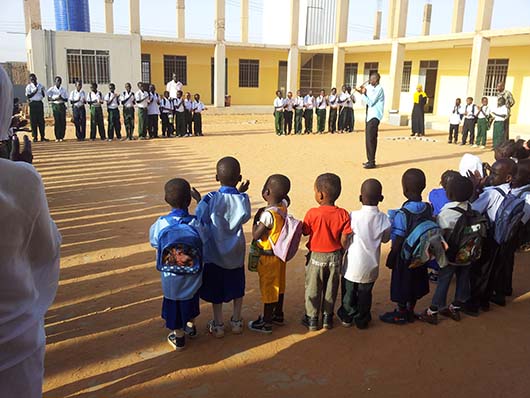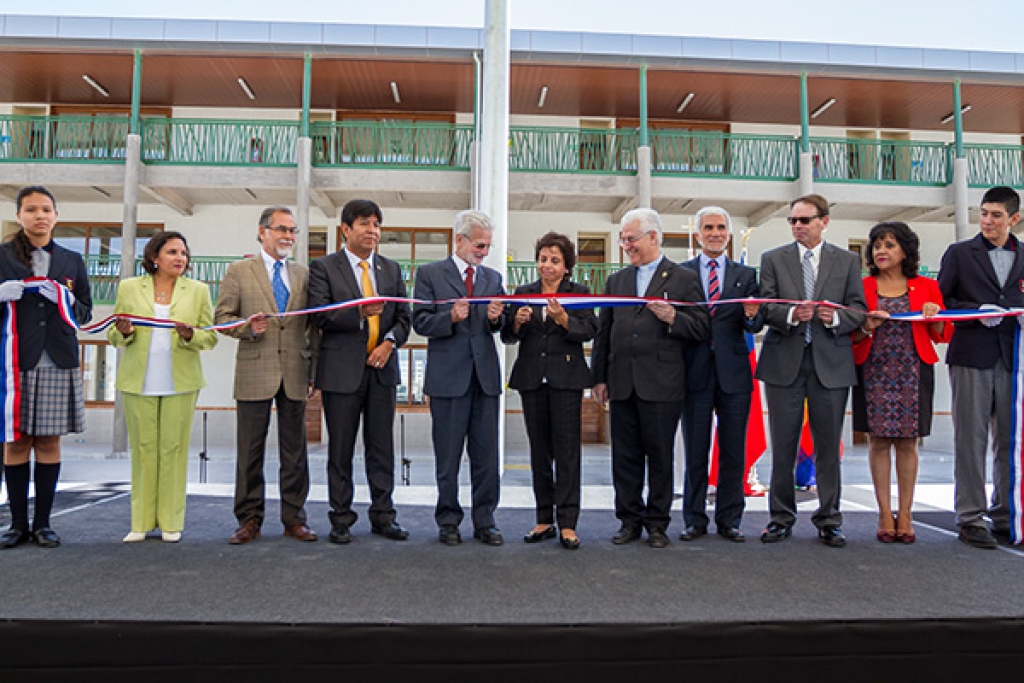South Sudan: Salesian Missionaries Have Built 60 Primary Schools Educating 13,500 Students

(MissionNewswire) Two Salesian missionaries, Father Vincenzo Donati and Brother James Comino, have been working to build schools across South Sudan since the country’s independence in 2011. The “One Hundred Village Schools for South Sudan” project started in 2012 and since that time, 60 primary schools, comprised of four classrooms and a teacher’s office, have been built across the Salesian dioceses in the country. These schools are currently educating 13,500 children. The remaining 40 schools are expected to be completed by 2017.
As a result of the violence and struggle to gain independence, much of South Sudan had been reduced to rubble. Infrastructure including hospitals, churches, schools and social program buildings were almost totally destroyed. Given the inability of the government to solve the problem, Fr. Donati and Bro. Comino decided that the best way to help the fledgling nation was through education. At the time of independence, more than 70 percent of the country’s children did not attend school.
The missionaries, with support from the Salesian Missions South Korea office, build small schools with assistance from the local community which also provides the school furnishings. Local experts help the missionaries decide where a new school should be built and then local labor is used in the construction with materials including iron, wood and concrete provided by neighboring Uganda. Each school takes up to four months to build. Fr. Donati and Bro. Comino carry out inspections of the construction and the schools’ operations.
“There were many difficulties at the beginning of the project,” says Bro. Comino. “Many people were skeptical, but the then Rector Major, Father Pascual Chávez, gave us the green light to start construction. In the summer of 2015, we had the pleasure of informing him personally that 60 schools had been opened.”
On average, each school accommodates 300 to 350 students in first through eighth grade. All classes are operated in partnership with seven area Catholic dioceses which also provide many of the teachers. In order to further encourage the development of dedicated, qualified teachers, especially among young women who can most directly benefit from the economic opportunity afforded by the profession, the project also established a teachers’ training institute in the village of Yambio. Here, theoretical concepts augment the practical experience that teachers gain in the classroom.
The next project Fr. Donati and Bro. Comino are undertaking is the development of an agricultural school to help teach local communities how to cultivate their own land. One of the biggest needs in South Sudan is more and better agriculture production. Nearly 80 percent of vegetables, fruit and cereals are imported from Uganda where the same type of land is available as in South Sudan.
The goal is to train youth in agricultural production to decrease the amount of imports needed in the country while engaging them in stable employment. The government of South Sudan has given the missionaries 2,500 hectares of land to start the agricultural school. The hope is for the school to become a model that demonstrates the land’s richness and ability to provide food. A recent warning from the United Nations noted that South Sudan has close to 4 million people at-risk of hunger.
“It is a question of creating a mindset to entice people to cultivate the land,” adds Bro. Comino. “It could also be a great response to those who are driven by hunger to emigrate, by making them independent and aware that they can cultivate the land and meet their food needs without having to look elsewhere. The food is there, under their feet.”
South Sudan is one of the poorest countries in the world with 55 percent of its population living in poverty, according to the World Bank. The country celebrated its third year of independence last July but is facing an ongoing civil war that started in December 2013 and has resulted in a dire humanitarian crisis.
The civil war has left thousands dead and displaced hundreds of thousands more. Close to 80,000 people have sought refuge at several UN compounds across the country. In the capital of Juba, 80 percent of those displaced are women and children. More than 350,000 people have fled to neighboring countries risking their lives and leaving everything behind.
Salesian missionaries assist those internally displaced through programs across South Sudan and in neighboring Kenya at the Kakuma refugee camp. More than 44 percent of refugees at the camp are from South Sudan and arrived after escaping conflict and violence.
###
Sources:
ANS – RMG – South Sudan: education and culture
World Bank- South Sudan
Salesian Missions – Emergency in Sudan


